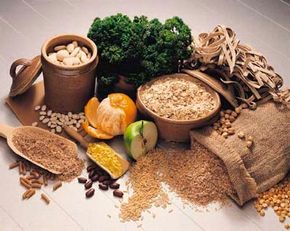A common internal cause of headache is liver yang rising up to the head, which may occur when a person experiences anger or frustration, or it can be a result of long-term deficiency of liver yin. Symptoms are dizziness, irritability, and nausea; the headache is a throbbing pain on the sides of the head or behind the eyes. The classic formula for this condition is Tian Ma Gou Teng Yin, which is also quite effective in relieving tight neck and shoulders that can accompany the headache. It contains two herbs specific for headaches due to liver imbalances.
In the condition known as liver fire, a condition of extreme heat, the symptoms are the same as for liver yang headaches, with the addition of red face and eyes, more severe anger, and a red tongue with a yellow coat. The standard formula for this pattern is Long Dan Xie Gan Wan, which purges heat from the liver.
Symptoms of blood stagnation headaches are a sharp, fixed, stabbing pain in a specific location, a wiry, choppy pulse, and a purple tongue. Usually, previous traumatic injury caused the blood stagnation. Herbs are selected that move the blood and help to relieve pain, such as Yan Hu Suo Zhi Tong Pian. A headache due to qi deficiency typically begins or gets worse after physical exertion, and it tends to feel better in the morning or after rest. A dull pain, it can be accompanied by fatigue and a poor appetite. The treatment principle in this case is to tonify qi. Some appropriate patent remedies are Bu Zhong Yi Qi Wan or Shen Qi Da Bu Wan.
If blood deficiency is the cause, the pain is dull but a little more severe than the pain of qi deficiency. A pale face and tongue, dizziness, blurry vision, and a small, thin pulse are typical symptoms. The pain begins or gets worse when the person is hungry or after the menstrual period. The classic formula, Nu Ke Ba Zhen Wan, tonifies qi and blood. Also, Tang Kwei Gin or Shou Wu Chih are effective blood tonics in a convenient, good-tasting liquid form.
